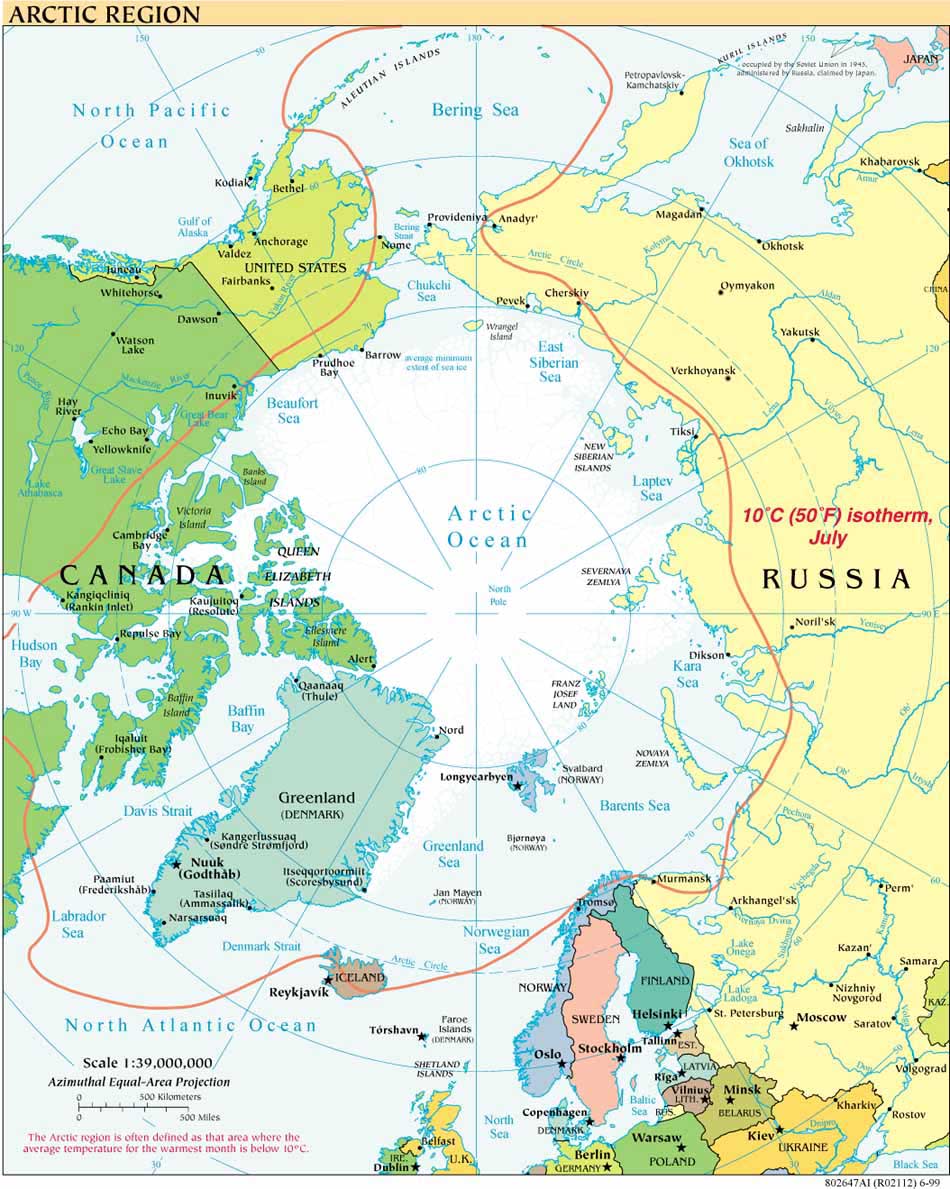A diverse, bipartisan coalition of politicians, military leaders, corporate interests and environmental groups has launched a new initiative, The American Sovereignty Campaign, to urge US accession to the UN Convention on the Law of the Sea in the current Congress. The site provides multiple fact sheets, an interactive map and background on why each of the coalition groups supports the Convention. For example, representatives of Lockheed Martin Corporation, Level 3
Communications, the U.S. Chamber of
Commerce and the American
Petroleum Institute – "made the business case for Law of the Sea Treaty
ratification" at a recent Forum sponsored by the Atlantic Council and the
Pew Charitable Trusts.
The United States is the only Arctic State that is not a party to the LOS Convention, having first submitted the treaty to the U.S. Senate for approval in 1994, but has not yet acceded to it. Denmark and Canada joined the treaty in 2004 and 2003 respectively. Until the US accedes to the treaty it cannot submit its data regarding the extent of the US extended continental shelf (ECS) to the Commission on the Limits of the Continental Shelf, established under the treaty. Without a Commission recommendation regarding such data, the legal foundation for US ECS limits is much less certain than if the US were a party to the LOS Convention.
The ASC website also addresses arguments, many of them unfounded, raised by treaty opponents. For example, the site sets straight the record showing that former President Reagan's initial objections to the convention have been resolved.
The United States is the only Arctic State that is not a party to the LOS Convention, having first submitted the treaty to the U.S. Senate for approval in 1994, but has not yet acceded to it. Denmark and Canada joined the treaty in 2004 and 2003 respectively. Until the US accedes to the treaty it cannot submit its data regarding the extent of the US extended continental shelf (ECS) to the Commission on the Limits of the Continental Shelf, established under the treaty. Without a Commission recommendation regarding such data, the legal foundation for US ECS limits is much less certain than if the US were a party to the LOS Convention.
The ASC website also addresses arguments, many of them unfounded, raised by treaty opponents. For example, the site sets straight the record showing that former President Reagan's initial objections to the convention have been resolved.



